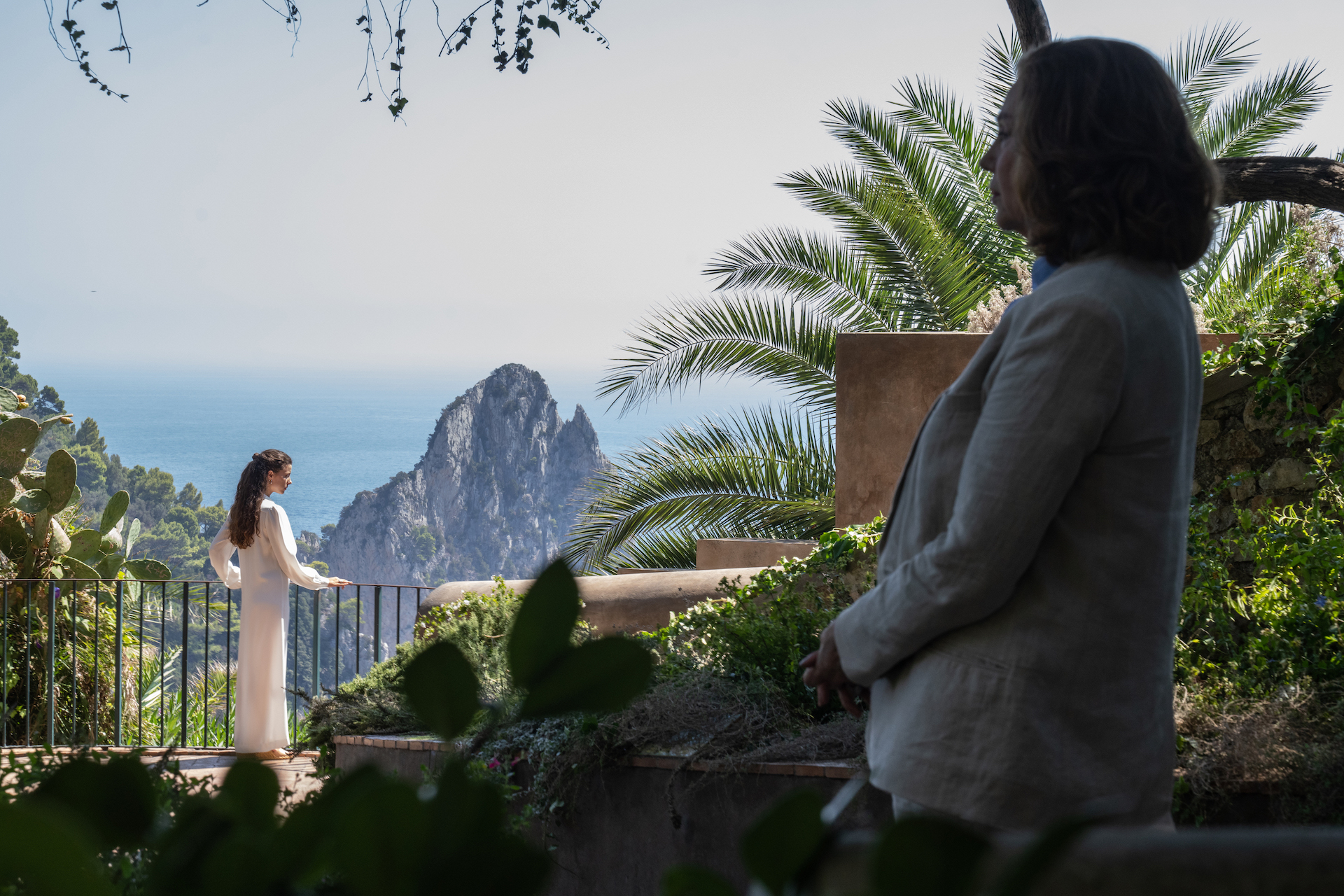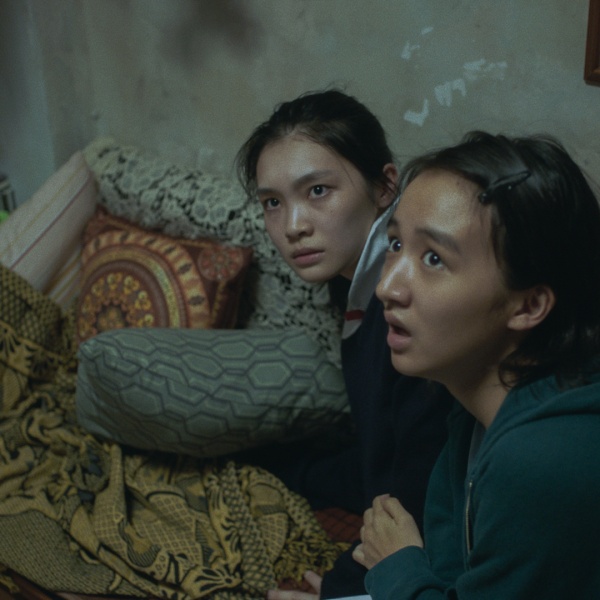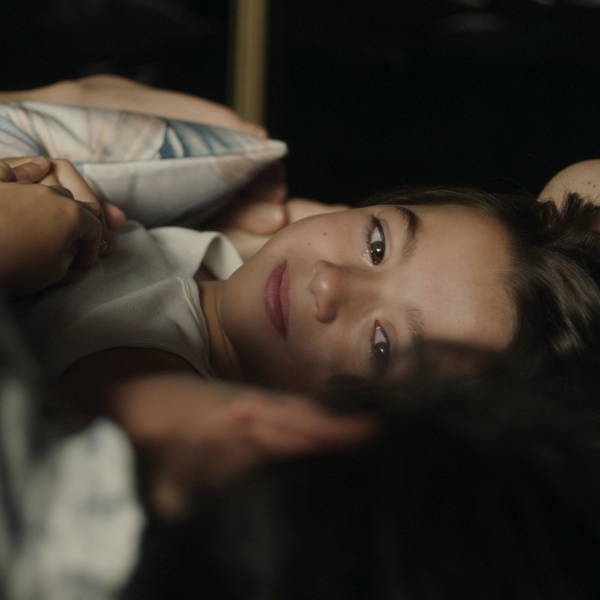It’s no secret that Paolo Sorrentino is profoundly obsessed with the topics of youth and great beauty. Such preoccupations — and several more! — are self-evident in films like “Youth” and “The Great Beauty,” two unbridled displays of Italian maximalism that are every bit as subtle as their titles suggest.
Following 2021’s achingly personal “The Hand of God,” in which the Neapolitan director filtered the agony and the ecstasy of his formative years through the same veil of Fellini-esque sacrilege that he’d previously cast over movies about Silvio Berlusconi and the fading splendor of Roman history, Sorrentino is back on his proverbial bullshit with another sprawling flesh parade that’s more consumed with abstract ideals than it is with the stuff of life itself. Once again, he returns with a rapturously sumptuous film that blurs the line between the sacred and the profane until sex feels like religion and religion feels like sex, and once again he’s compelled by the siren’s song of youth and great beauty.
With “Parthenope,” which borrows its name from one of the sirens of Greek myth, Sorrentino is unusually preoccupied with the relationship between youth and great beauty. This isn’t the first time that he’s pitted those twin intoxicants against each other, contrasting the ephemeral nature of human lust against the eternal spirit of the poetry, architecture, and deities we create in retaliation to that fact. In “Parthenope,” however, the 53-year-old filmmaker dares to ask whether it’s possible to separate the two. More to the point: He questions whether people are capable of fully appreciating them both at the same time.
But really, “Parthenope” is just a long movie made by a middle-aged man who almost drives himself insane trying to imagine what life would be like as an unbelievably hot woman. It’s a mystery that’s taunted male artists for as long as they’ve dreamed of possessing the beauty of their muses, Sorrentino’s efforts to make sense of it feel as anachronistic in 2024 as it might have been to give birth to a sea creature from ancient Greece during the summer of 1950. Then again, some compulsions may be more timeless than we realize.
Legend has it that Parthenope drowned herself in the sea when her songs failed to seduce Odysseus, her body eventually washing up along the shores of Naples. In “Parthenope” (Paolo’s Version), the mythic beauty is born to a wealthy family who own a stunning villa at the water’s edge, and — in a lighter and more effervescent twist on “Teorema” — are slowly driven insane by the immaculate creature who comes into their lives.
Played by newcomer/instant star Celeste Dalla Porta, whose striking but unforced beauty could easily sing men into shipwrecks, Parthenope is every inch a male fantasy made flesh. That’s less a criticism of Sorrentino’s film than it is a description of its premise, as the writer/director quickly admits to those terms as he goes about trying to solve Parthenope’s allure, and ultimately — with a bitterness disguised as the stuff of sublime revelation — debunk it. From the beginning, everybody wants to have Parthenope, but nobody will be able to keep her. “She’s always fleeing,” one of the movie’s endless catalog of suitors laments. “That’s why men love her.”
Parthenope’s impressionable curiosity is only matched by her eagerness to learn. “I don’t know anything, but I love everything,” she sighs, her face drooping into a pout more radiant than the average mortal’s most ecstatic smile. Lucky for Parthenope, Italy is full of willing teachers. Teachers like Sandrino (Dario Aita), the housekeeper’s son, who fawns over Parthenope for the first 18 years of their lives, and shows her that men will always want to know what she’s thinking about because her beauty is too impenetrable for them to guess. And her ill-fated older brother Raimondo (Daniele Rienzo), who teaches Parthenope that even blood relatives aren’t immune to the longing she inspires; it’s a small mercy that Sorrentino relegates these incestual urges to the periphery of the action, where their poetic tragedy can motivate the plot from a safe distance.
Of course, “plot” is a loaded word to use in the context of a Paolo Sorrentino film, as the director often seems to be less of a storyteller than he is the ringmaster of a moving circus; as per Sorrentino tradition, the decades-spanning “Parthenope” doesn’t adhere to simple cause-and-effect so much as it swirls forward through the years like it’s trying to aerate some undiscovered meaning from them. “Parthenope” is considerably less dreamlike than some of the director’s previous work, but vast stretches of the movie seem to exist in nebulous pockets of non-time, if only because of their weird unreality.
That’s definitely true of the long sequence in which Parthenope has a run-in with the American author John Cheever (an “alcoholic, depressed, marvelous” Gary Oldman, only a bit cleaned up from the set of “Slow Horses”). They cross paths at a resort in the middle of Parthenope’s first true summer of self-becoming (right after a man has been so overcome by her beauty that he asks her out from a helicopter in mid-flight), and feel bonded to each other because the closeted novelist is pretty much the first man Parthenope has ever met who doesn’t want to have sex with her. This is a device so purely Sorrentino that you almost want him to get away with it just for being self-possessed enough to try, but his Cheever can offer so many canned musings before it starts to feel like you’re watching the most beautifully filmed audiobook ever made. “Desire is a mystery, and sex its funeral.” “Beauty is like war, it opens doors.” “Art is the triumph over chaos.” OK, that last quote isn’t in this movie, but it speaks to why John Cheever is.
Needless to say, he takes up a lot of Parthenope’s time for someone who insists that he doesn’t want to waste a minute of her youth. Their only truly important exchange comes at the end of Oldman’s glorified cameo, as Cheever asks Parthenope if she would marry him if he were 40 years younger. To which Parthenope, who prides herself on having an answer ready for everything, replies that the real question is if Cheever would marry her if she were 40 years older.
It’s the first of several moments in the film that reminds Parthenope of her fleeting youth with a pointedness that threatens to border on spite, as if Sorrentino is taking some gendered revenge in the idea that women only briefly possess the power to drive men insane. Preoccupied with the idea that a lack of self-knowledge is what makes people mysterious, “Parthenope” denies its namesake any real interiority, convinced that depriving us the chance to appreciate her perspective might somehow enhance her rhetorical value. Here, objectification is framed as a means to an end, and while Celeste Dalla Parta is truly one of the most photogenic human beings I have ever seen (“Parthenope” is replete with close-ups so perfect and straight-on they feel like Classical Greek busts), the range she displays in later portions of the film suggest that Sorrentino has sorely underutilized her talents as an actress.
This is all a prelude to Parthenope’s time as an anthropology student, where she comes under the tutelage of a curmudgeonly old professor named Devoto Marotta (a wonderful Silvio Orlando). He’s such a good teacher that he refuses to even tell her what anthropology really is, a riddle that only he can answer. Sorrentino will put a pin in this as the movie’s skeleton key and circle back to it in the dying minutes with a gust of manufactured profundity, but his sensorial impulses refuse to let him stay with it for more than a scene or two at a time.
Instead, he indulges himself on a walkabout through his own larger than life imagination, a journey to nowhere that includes unpredictable pit stops like a cholera outbreak, a “Great Fusion” in which Parthenope watches a priest bless the heirs of two mafia clans before they ceremonially have sex in front of their entire families, a decrepit acting teacher who refuses to show her face because of all her botched plastic surgeries, and a heart-stopping jump-scare courtesy of a grandfather clock. To Sorrentino, nothing could be more terrifying to a woman than the threat of time passing.
Some of these things are specifically evocative of Naples, such as the cholera epidemic of 1973 and the enervating scene about an angry diva who so despises her hometown that she only comes back to look down on the people who live there. And yet, however personal it must be and clearly is for Sorrentino, the film’s connection to the place that created him is nebulous in a way that makes it difficult for the rest of us to appreciate. To some extent it seems as if “Parthenope” is a requiem for the faded beauty of the city where the siren is said to have washed up on shore, and Parthenope herself a stand-in for Naples’ regression from splendor to ruin. But has Sorrentino’s hometown really gotten so much less attractive since his childhood, or is that the veil of youth has been lifted from his own eyes, and he no longer looks at the world with the same magic he once did?
By that logic, Naples’ supposed ugliness would liberate him to appreciate the virtues which its charm may once have obscured, as “Parthenope” — which builds to one of the most bizarre climaxes of any film in recent years — is ultimately of the belief that great beauty invites deceit, distracting from a truth too raw or painful for people to reckon with head-on. By the same token, the film maintains that young people are simply too gorgeous to appreciate life for its full splendor, as life is too gorgeous for them to appreciate its richness in return. And so Parthenope can only be happy when she is free from the curse of her own stunning existence, though by the end of Sorrentino’s film it can’t help but feel as if he is the one who is blind to everything else.
Grade: C
“Parthenope” premiered in Competition at the 2024 Cannes Film Festival. A24 will release it in theaters later this year.





